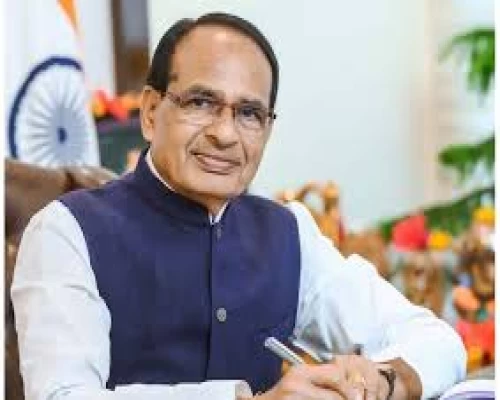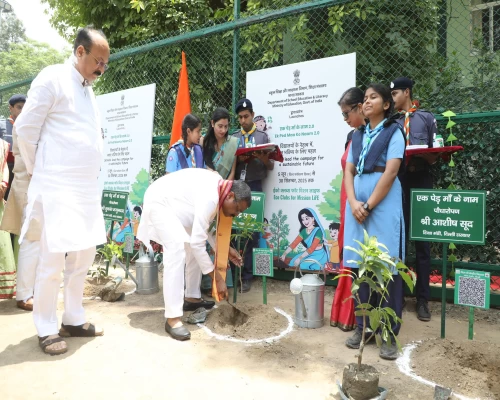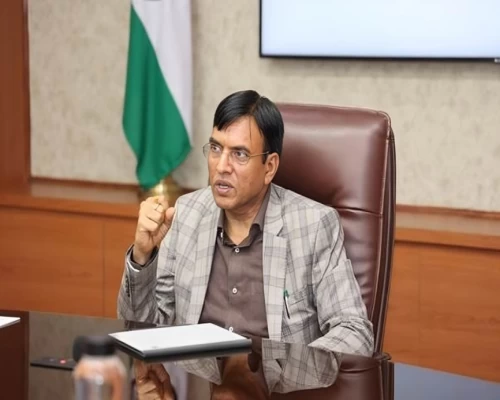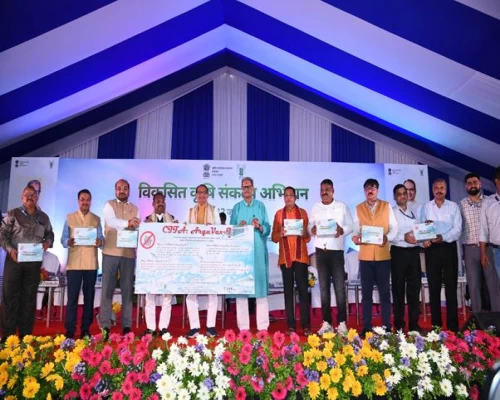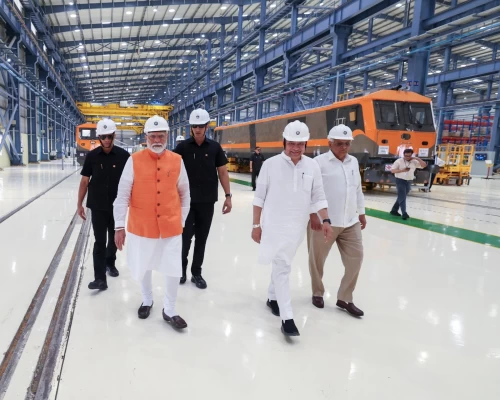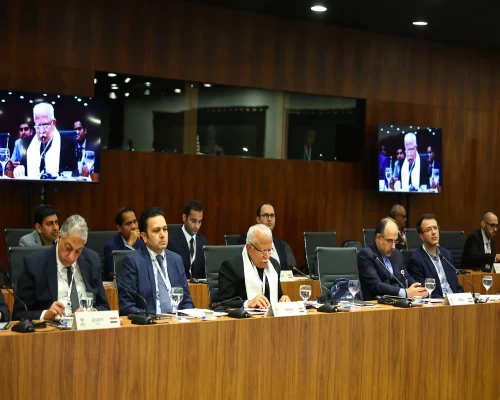
New Delhi: Union Power Minister RK Singh has praised India's remarkable achievements in energy transition, describing the country as a pioneering trailblazer.
He highlighted that India's per capita carbon emissions are only one-third of the global average, while speaking at the Sustainable is Attainable (SIA) Fest organized by Tata Power and Network 18.
“We’re adding power capacity every day, from 2014 we have added 184,000 MG watt of capacity, which has been the largest addition of the capacity in the world," he further added.
Amid the global repercussions of fossil fuel consumption, the shift towards renewable and sustainable energy sources has become imperative. India, fully acknowledging the gravity of this worldwide issue, has undertaken substantial endeavors to foster the growth of green energy.
With a bold vision in mind, India has set ambitious goals to expand its renewable energy capacity, aiming to reach 450 gigawatts (GW) by 2030, positioning itself as a frontrunner in the global green energy landscape. To encourage investments in the renewable energy sector, the government has implemented a range of policy measures, along with offering incentives and subsidies.
“One Earth, One Future is the right approach to development. We are working with the whole-of-government and whole-of-society approach to fight climate change. All arms of the government are working together to ensure Sustainable Is Attainable,” said Union Environment Minister Bhupender Yadav,
Union Power Minister RK Singh has praised India's remarkable achievements in energy transition, describing the country as a pioneering trailblazer.
He highlighted that India's per capita carbon emissions are only one-third of the global average, while speaking at the Sustainable is Attainable (SIA) Fest organized by Tata Power and Network 18.
“We’re adding power capacity every day, from 2014 we have added 184,000 MG watt of capacity, which has been the largest addition of the capacity in the world," he further added.
Amid the global repercussions of fossil fuel consumption, the shift towards renewable and sustainable energy sources has become imperative. India, fully acknowledging the gravity of this worldwide issue, has undertaken substantial endeavors to foster the growth of green energy.
With a bold vision in mind, India has set ambitious goals to expand its renewable energy capacity, aiming to reach 450 gigawatts (GW) by 2030, positioning itself as a frontrunner in the global green energy landscape. To encourage investments in the renewable energy sector, the government has implemented a range of policy measures, along with offering incentives and subsidies.
During the 2015 Paris Summit, India committed to obtaining 40 per cent of its total energy from non-fossil fuel sources by 2030. Astonishingly, India has already surpassed this target, currently standing at 42.8% with seven years remaining until the deadline. Additionally, India has emerged as one of the most attractive markets for renewable energy.
The SIA Fest marked a significant milestone in celebrating India's green energy progress by bringing together key stakeholders on a common platform to outline the roadmap for the future. It served as a momentous occasion where participants from diverse sectors converged to showcase achievements, address challenges, and explore opportunities in sustainable energy.
Through meaningful discussions and collaborations, the fest aimed to foster understanding, idea exchange, and collective action towards a sustainable and greener future.
The Fest also saw participation from corporate leaders, Ambassadors and delegates of foreign embassies in India, thought leaders, and celebrities and created a vibrant platform for fostering dialogue and promoting the adoption of green energy in India. By celebrating sustainability and garnering support from key leaders, the fest aimed to inspire millions of Indians to embrace and achieve sustainable lifestyles. /BI/





